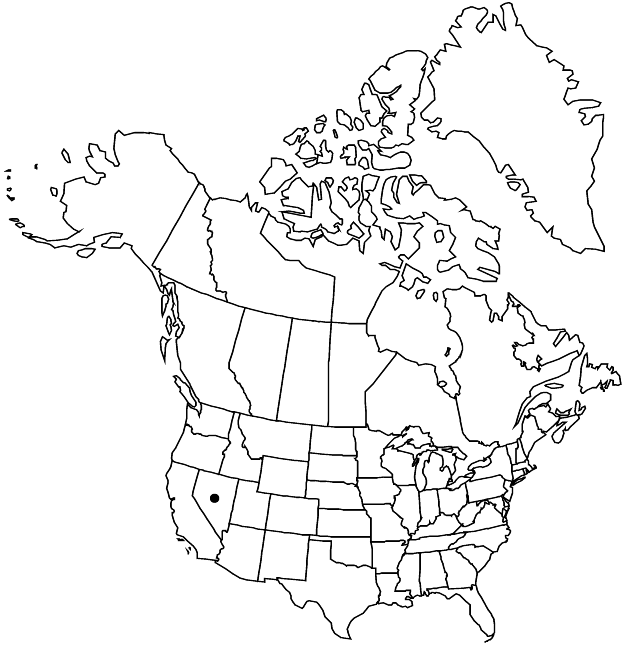Eriogonum ovalifolium var. williamsiae
Brittonia 33: 446. 1981.
Plants 1–5 dm wide. Leaf blades broadly elliptic to oval or reniform, 0.3–0.7 cm usually white-tomentose, margins brown-ish. Scapes erect, (1–)5–15(–18) cm, tomentose. Inflorescences capitate, 1–2 cm wide; branches absent. Involucres 3–10 per cluster, 4–5 mm. Flowers 4–5 mm; perianth white.
Phenology: Flowering May–Jul.
Habitat: Heavy clay soil, sagebrush communities
Elevation: 1400 m
Discussion
Variety williamsiae is listed federally as endangered and is known only from Steamboat Springs in southern Washoe County. The plants are restricted to an outcrop of sinter, a substrate derived from hot spring deposits. The population occupies ca. 150 hectares and is divided into three subpopulations.
J. K. Archibald et al. (2001) found that the “Steamboat buckwheat has high genetic variability, with levels of variation similar to that typical of a widespread species rather than a narrow endemic.” They also found var. williamsiae to be allozymically most similar to var. ovalifolium, but conceded that the two are morphologically distinct. Evidence of male sterility in var. williamsiae suggested that the taxon might be “a hybrid or undergoing cytoplasmic introgression.” The facts that these plants are capable of fragmentation and that they have low seed-set are not surprising, as these traits are found in other entities in subfam. Eriogonoideae (e.g., see discussion under Dedeckera). Given the long-lived nature of an individual plant, and the dense, crowded condition of the restricted habitat where the variety is found, the low rate of seed-set is obviously adequate for its long-term survival.
Variety williamsiae is in the Center for Plant Conservation’s National Collection of Endangered Plants.
Selected References
None.
